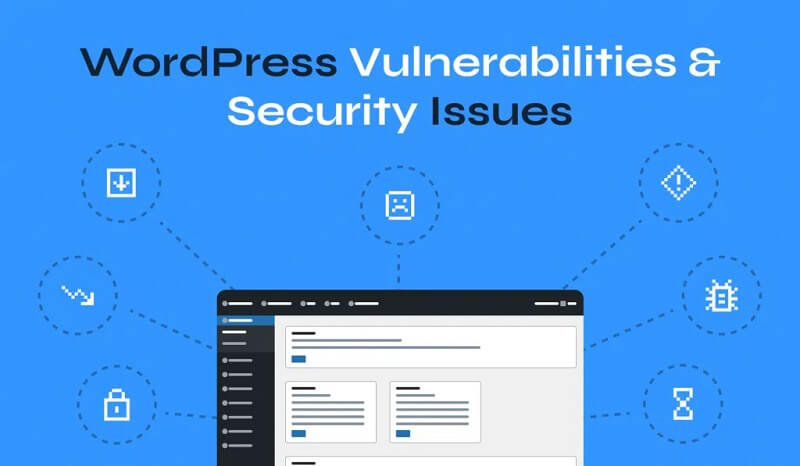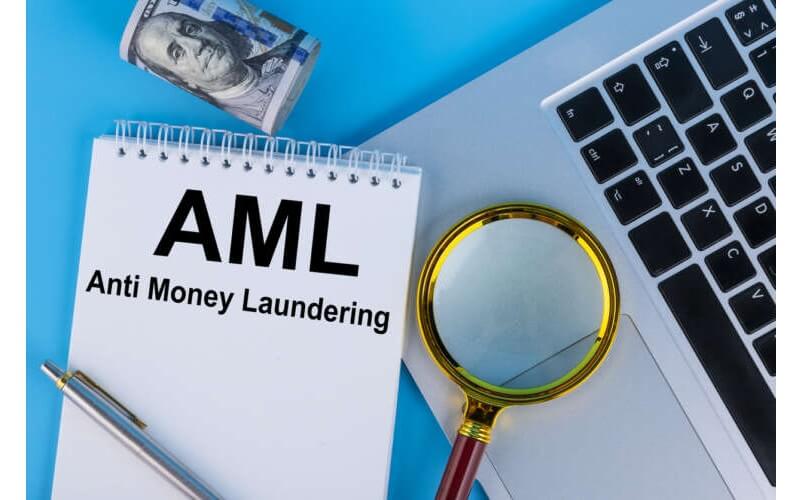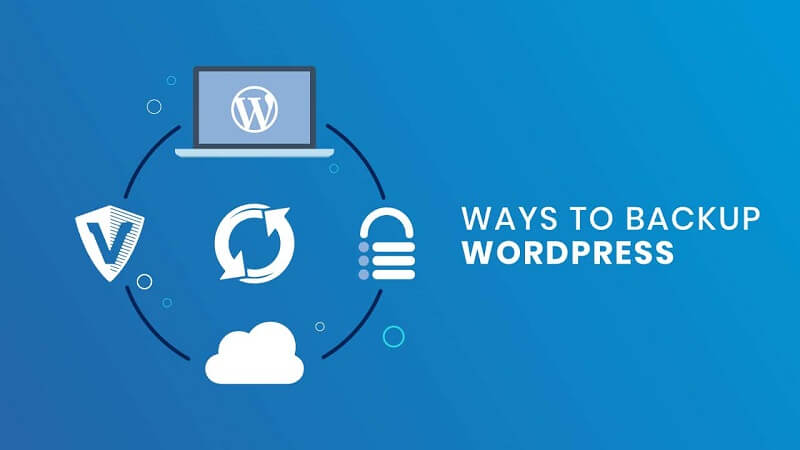Essential Tips for Securing Your WordPress Website and WooCommerce Store
Learn essential tips for securing your WordPress website and WooCommerce store. Keep your online business safe with our expert advice.
Countless businesses across the world use WordPress and WooCommerce for their websites or online stores. However, the popularity of this software has caused increased attention from cybercriminals seeking to exploit the vulnerabilities that exist in weak websites.
WordPress faces about 90,000 attacks per minute, and nearly 8% of WordPress websites are hacked due to weak passwords.
This article delves into the common security threats faced by WordPress and WooCommerce users, such as brute force attacks and data breaches. We’ll explore the tips for securing your WordPress website and the implications of these threats on online stores, including financial loss, damage to brand reputation, and regulatory compliance issues.
Also, we’ll discuss proactive measures and best practices to fortify your website’s defenses, such as integrating Anti-Money Laundering (AML) transaction monitoring systems, choosing a secure hosting service, managing user permissions effectively, and implementing regular backups.
Essential Tips for Securing Your WordPress Website:
Understanding Security Risks

WordPress and WooCommerce are popular platforms that are prone to attacks from cybercriminals. Below are some common security threats associated with these platforms:
- Brute force attacks: hackers attempt to gain unauthorized access to your website by guessing usernames and passwords.
- SQL injection: Attackers inject malicious code into your website’s database, potentially compromising or stealing sensitive information.
- Cross-site scripting (XSS): hackers inject malicious scripts into web pages viewed by users, leading to the theft of cookies, session tokens, or other sensitive information.
- Malware infections: malicious software can infect your website, causing disruptions, stealing data, or engaging in phishing attacks.
- DDoS Attack: Distributed Denial of Service attacks overwhelm your website with traffic, causing it to become inaccessible to legitimate users.
Now, let’s check out the risks associated with running an online store:
Data breaches: Unauthorized access to customer data such as personal information, credit card details, and purchase history can severely damage your reputation and lead to legal repercussions
Financial loss: downtime due to security breaches can result in loss of sales and revenue, impacting your bottom line.
Damage to brand reputation: A single security breach can erode trust and credibility, driving away potential customers and harming your brand image.
Regulatory compliance issues: Failure to adequately protect customer data can result in non-compliance with regulations such as GDPR or PCI DSS, leading to fines and penalties. You can use a Google consent management platform partner to manage user consent for data collection and processing activities.
Use AML transaction monitoring systems for woo-commerce stores

Anti-Money Laundering (AML) regulations are laws and regulations designed to prevent criminals from disguising illegally obtained funds as legitimate income. These regulations aim to detect and deter money laundering activities by imposing strict requirements on financial institutions and businesses to monitor and report suspicious transactions.
Compliance with AML regulations is mandatory in many jurisdictions worldwide to combat financial crime effectively.
Transaction monitoring service is a sophisticated tool implemented to automate the process of monitoring and analyzing financial transactions for signs of potential money laundering or terrorist financing activities. These systems utilize advanced algorithms and machine learning techniques to identify suspicious patterns, flag high-risk transactions, and generate alerts for compliance professionals to investigate further.
For WooCommerce store owners, integrating AML transaction monitoring systems offers a streamlined approach to compliance with AML regulations. Through seamless integration with the WooCommerce platform, these systems can analyze payment transactions in real-time, automatically screen customer information against watchlists and sanctions lists, and generate alerts for suspicious activities.
By integrating AML systems with WooCommerce, businesses can ensure compliance with regulatory requirements while minimizing the impact on the customer shopping experience.
Here are some benefits of using AML transaction monitoring for security and compliance
Enhanced security: AML systems help identify and prevent fraudulent transactions, reducing the risks of financial loss due to fraudulent activities
Improved compliance: By automating compliance processes, AML systems ensure adherence to AML regulations, reducing the risk of fines, penalties, and reputational damage associated with non-compliance.
Reduced manual effort: Automation of transaction monitoring tasks frees up compliance professionals to focus on more strategic activities, improving efficiency and reducing operational costs.
Proactive risk management: By identifying and addressing potential risks early on, AML systems enable businesses to mitigate the risk of financial crime and protect their reputation.
Choose a secure WordPress hosting service
Your hosting service acts as the foundation of your WordPress site. It’s responsible for storing your website’s files, delivering them to visitors, and ensuring your site remains accessible and secure around the clock. When assessing hosting providers, consider the following criteria, especially if you’re running a WooCommerce store:
- Performance optimization features: Look for hosting providers that offer features like SSD storage, content delivery networks (CDNs), and caching mechanisms to optimize website speed and performance.
- Technical support for Woocommerce: Ensure that the hosting service offers specialized support for WooCommerce, including assistance with setup, troubleshooting, and optimization.
- Security measures: Evaluate the hosting provider’s security protocols, such as firewalls, malware scanning, SSL certificates, and regular backups, to safeguard your website against cyber threats.
- Uptime guarantee: Choose a hosting service with a high uptime guarantee to minimize downtime and ensure your website remains accessible to visitors at all times.
Your hosting service is crucial in safeguarding your website’s data and functionality. A secure hosting environment protects unauthorized access, data breaches, and malicious attacks, helping maintain your website’s integrity and confidentiality. Additionally, reliable hosting ensures consistent uptime and performance, preventing disruptions that could negatively impact user experience and business operations.
Manage user permissions and access restrictions
User roles in WordPress and Woocommerce define the level of access and privileges granted to different users. Each role comes with specific capabilities, ranging from basic tasks like reading content to advanced actions such as managing settings or processing orders. Common user roles include
- Administrator: Has full control over the website, including managing users, plugins, themes, and settings.
- Editor: Can publish, edit, and delete posts and pages, as well as moderate comments.
- Author: Can create, edit, publish, and delete their posts.
- Contributor: Can write and edit their posts but cannot publish them.
- Subscriber: Can only manage their profile and comment on posts.
Assigning appropriate user roles ensures that individuals have access only to the features and functionalities necessary for their tasks, reducing the risk of unauthorized access or misuse of privileges.
Recommendations for limiting access and privileges
To prevent unauthorized actions and enhance security, consider the following recommendations for limiting access and privileges based on user roles:
- Use the least privilege principle: Assign the lowest level of access necessary for users to perform their tasks effectively, minimizing the risk of accidental or intentional misuse of privileges.
- Customize user roles: Utilize plugins or custom code to create custom user roles with tailored capabilities, ensuring a precise fit for your website’s specific requirements.
- Implement two-factor authentication (2FA): Add an extra layer of security by requiring users, especially administrators, to authenticate their identity using 2FA methods such as SMS codes or authenticator apps.
- Regularly audit user permissions: Conduct periodic reviews of user roles and permissions to identify any discrepancies or outdated access levels and adjust as necessary to maintain security.
Implementing regular backup

Backups serve as a safety net for your WooCommerce store, providing a lifeline in the event of data loss, website crashes, or security breaches. They allow you to restore your website to its previous state, minimizing downtime and also ensuring continuity of operations.
With backups, you can avoid losing valuable customer data, order information, product details, and also other critical assets, which can have severe repercussions for your business’s reputation and bottom line.
To ensure comprehensive coverage and redundancy, consider the following guidelines for scheduling and storing backups:
- Frequent backup schedule: Schedule regular backups, ideally daily or weekly, to capture the latest changes and updates to your WooCommerce store.
- Multiple backup copies: Maintain multiple backup copies to guard against data corruption or loss. Store backups on different servers or platforms to mitigate the risk of a single point of failure.
- Offsite storage: Store backups securely in remote locations, away from your primary server or hosting environment. Cloud storage services or dedicated backup solutions offer reliable offsite storage options for added protection.
Tips for Securing Your WordPress Website and WooCommerce Store
Safeguarding your WordPress and WooCommerce website against security threats is paramount to maintaining the integrity, trust, and also functionality of your online store.
The risks associated with running an online store, such as data breaches, financial loss, damage to brand reputation, and regulatory compliance issues, underscore the importance of prioritizing security measures.
By understanding common security risks and implementing proactive measures, such as integrating AML transaction monitoring systems, choosing a secure hosting service, managing user permissions, and implementing regular backups, you can significantly reduce the likelihood of security breaches and their associated consequences.
Author’s Bio: Mercy Adewumi
Mercy is a professional B2B and SaaS writer who specializes in crafting advanced-level content that is engaging, fun, and appeals to top-level executives. She is a resilient, self-motivated, and also a result-driven person with the proven ability to create high-quality content related to Business, Saas Tech, and the Financial Markets. She believes that SEO is the best digital marketing medium and is ideal for long-term growth. When she is not writing, she is creating strategies for business growth.

 My Account
My Account 

